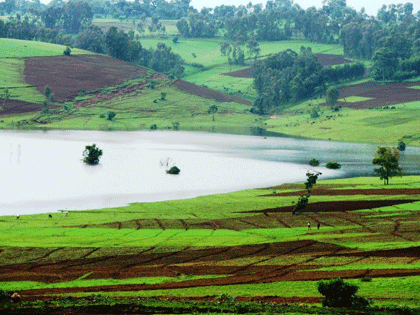
Despite the many disastrous impacts of climate change, there are some regions of the globe that might benefit from hotter temperatures.
A team of researchers from Virginia Tech have predicted that water availability in the Blue Nile Basin of Ethiopia may increase in coming decades due to global climate change. It could also lead to increased crop production, spur massive hydroelectric power projects, and foster irrigation development in the region.
“For all the catastrophic impacts of climate change, there are some silver linings,” said Zach Easton, associate professor of biological systems engineering. “The sad irony is that climate change may be the catalyst Ethiopia needs to become a food-exporting country.”
The research team used a suite of climate and hydrologic models to predict the impact of climate change on water availability and sediment transport in the Blue Nile. Most previous Nile Basin climate impact studies have only focused on water availability, but the study conducted by the team at Virginia Tech was a first of its kind to to assess sediment transport, a big problem in the basin where some of the highest erosion rates in the world have been measured.
The findings of the study were recently published in the journal Climatic Change.
“Ethiopia could experience increased water accessibility making growing seasons longer and potentially allowing for two crops to be grown per year,” said Moges Wagena, from Assosa, Ethiopia.
